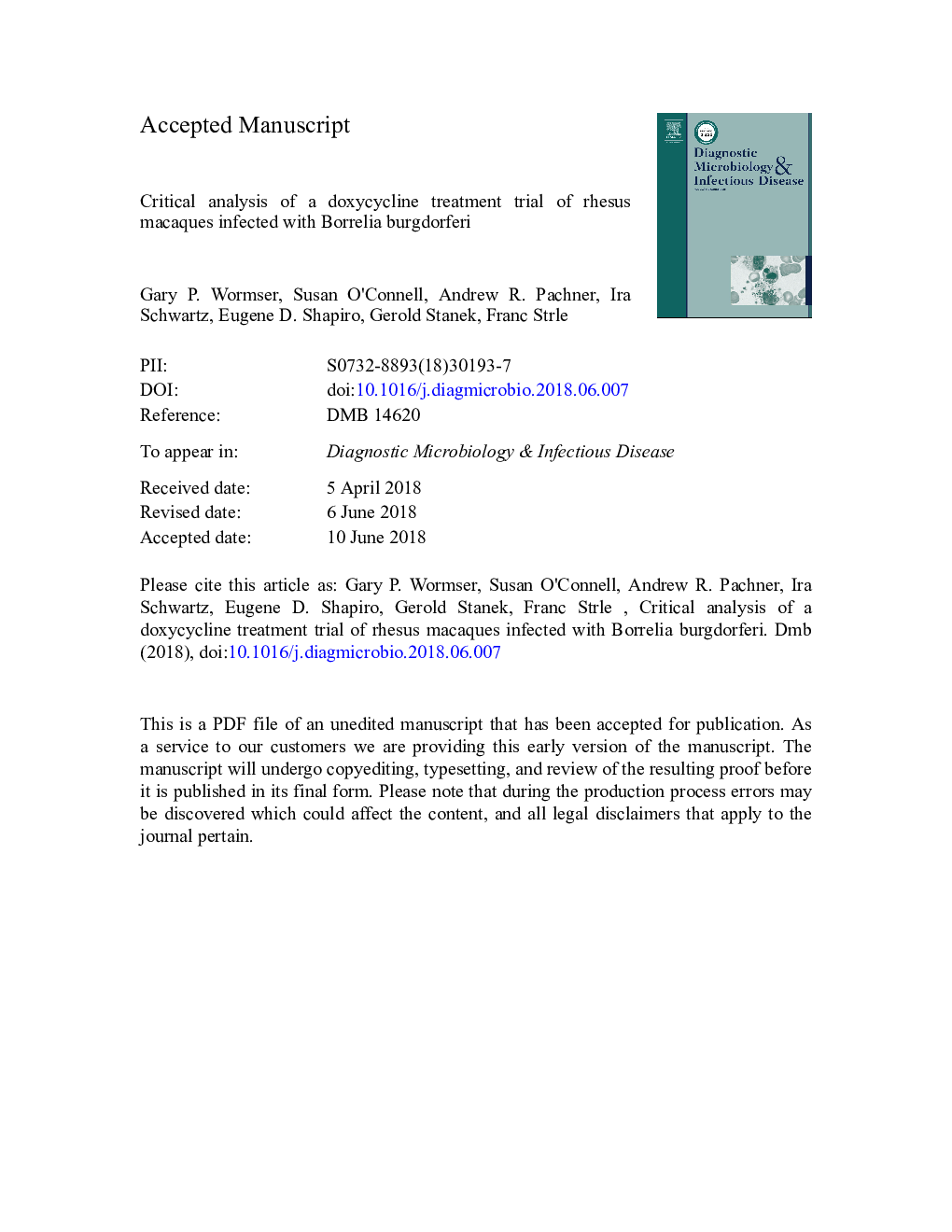| Article ID | Journal | Published Year | Pages | File Type |
|---|---|---|---|---|
| 11014232 | Diagnostic Microbiology and Infectious Disease | 2018 | 27 Pages |
Abstract
A critical analysis was conducted of a doxycycline treatment trial of Indian rhesus macaques. In this treatment trial, the investigators attempted to infect the primates with Borrelia burgdorferi sensu stricto by at least 10 tick bites from artificially infected ticks. None of the primates became ill; nevertheless, 5 primates were treated with a 28-day course of oral doxycycline. In contrast to the conclusions of the authors, the data did not convincingly document the existence of viable B. burgdorferi in antibiotic-treated primates. The investigators were unable to cultivate the spirochete from any animal after treatment using highly sensitive in vitro methods. Like many prior animal studies, the current study also did not document that the doxycycline exposure in these animals was similar to that expected in humans. Numerous additional methodologic problems are discussed.
Related Topics
Life Sciences
Immunology and Microbiology
Applied Microbiology and Biotechnology
Authors
Gary P. Wormser, Susan O'Connell, Andrew R. Pachner, Ira Schwartz, Eugene D. Shapiro, Gerold Stanek, Franc Strle,
